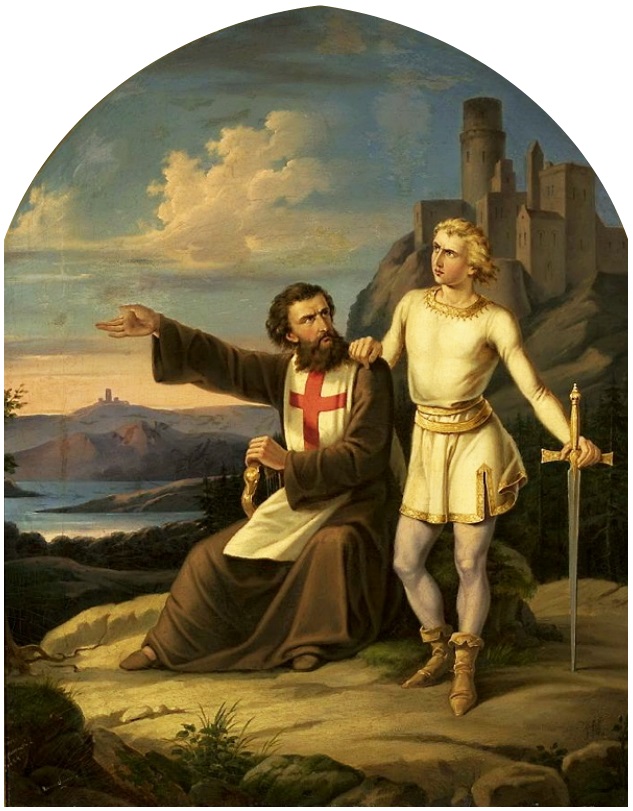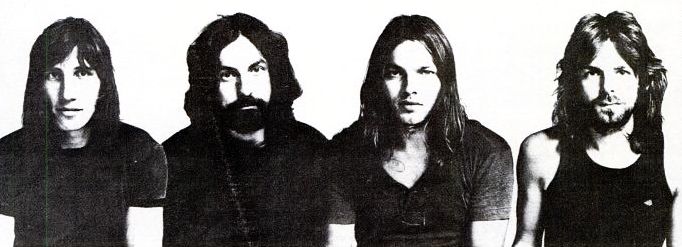|
Stepan Charnetsky
Stepan Mykolaiovych Charnetskyi (sometimes ''Charnetsky'', Ukrainian: Степан Миколайович Чарнецький, Polish: Stepan Czarnecki; January 21 1881, Shmankivtsi, Austria-Hungary – October 2 1944, Lviv, USSR) was a Ukrainian poet, translator, journalist, theatre and music critic, and theatre director and producer, author of the anthem of the Ukrainian Sich Riflemen "Oi u luzi chervona kalyna" Biography Charnetskyi was born 21 January 1881 in Shmankivtsi, Austria-Hungary (now in Chortkiv Raion, Ternopil Oblast, Ukraine). He was the thirteenth child in a priest family. His father was Greek Catholic priest Mykola Charnetskyi, who died of typhoid soon after his birth. His mother was Vladyslava Eckhardt-Charnetska.Мориквас, Н. "Меланхолія Степана Чарнецького". 2005. He went to school in Stanyslaviv and then studied in Lviv's Tsisars-Royal Technical Academy (now Lviv Polytechnic National University). He then worked in Lvi ... [...More Info...] [...Related Items...] OR: [Wikipedia] [Google] [Baidu] |
Lviv Polytechnic National University
Lviv Polytechnic National University ( ua, Націона́льний університе́т «Льві́вська політе́хніка») is the largest scientific university in Lviv, Ukraine. Since its foundation in 1816, it has been one of the most important centres of science and technological development in Central Europe. In the interbellum period, the Polytechnic was one of the most important technical colleges in Poland, together with the Warsaw Polytechnic. In 2020, Lviv Polytechnic was ranked globally among the top 1000 universities according to Times Higher Education. As of 2019, there were approximately 35,000 students in the university. History The history of the Lviv Polytechnic National University begins during the Austrian Empire, and extends through the Second Polish Republic, the Nazi Occupation, the Soviet Union, and into independent Ukraine. On 7 March 1816, the Tsisar-Royal Real School was opened in Lemberg (Lviv). A technical school was establi ... [...More Info...] [...Related Items...] OR: [Wikipedia] [Google] [Baidu] |
June 25
Events Pre-1600 * 524 – The Franks are defeated by the Burgundians in the Battle of Vézeronce. * 841 – In the Battle of Fontenay-en-Puisaye, forces led by Charles the Bald and Louis the German defeat the armies of Lothair I of Italy and Pepin II of Aquitaine. * 1258 – War of Saint Sabas: In the Battle of Acre, the Venetians defeat a larger Genoese fleet sailing to relieve Acre. *1530 – At the Diet of Augsburg the Augsburg Confession is presented to the Holy Roman Emperor by the Lutheran princes and Electors of Germany. 1601–1900 *1658 – Spanish forces fail to retake Jamaica at the Battle of Rio Nuevo during the Anglo-Spanish War. * 1678 – Venetian Elena Cornaro Piscopia is the first woman awarded a doctorate of philosophy when she graduates from the University of Padua. * 1741 – Maria Theresa is crowned Queen of Hungary. *1786 – Gavriil Pribylov discovers St. George Island of the Pribilof Islands in the Bering Sea ... [...More Info...] [...Related Items...] OR: [Wikipedia] [Google] [Baidu] |
1830
It is known in European history as a rather tumultuous year with the Revolutions of 1830 in France, Belgium, Poland, Switzerland and Italy. Events January–March * January 11 – LaGrange College (later the University of North Alabama) begins operation, becoming the first publicly chartered college in Alabama. * January 12– 27 – Webster–Hayne debate: Robert Y. Hayne of South Carolina debates the question of states' rights vs. federal authority with Daniel Webster of Massachusetts in the United States Congress. * February 3 – The London Protocol establishes the full independence and sovereignty of Greece from the Ottoman Empire, as the result of the Greek War of Independence. * February 5 – A fire destroys the Argyll Rooms in London, where the Philharmonic Society of London presents concerts, but firefighters are able to prevent its further spread by use of their new equipment, steam-powered fire engines. * March 26 – The Book of Mormon is published in Palm ... [...More Info...] [...Related Items...] OR: [Wikipedia] [Google] [Baidu] |
January 2
Events Pre-1600 * 69 – The Roman legions in Germania Superior refuse to swear loyalty to Galba. They rebel and proclaim Vitellius as emperor. * 366 – The Alemanni cross the frozen Rhine in large numbers, invading the Roman Empire. * 533 – Mercurius becomes Pope John II, the first pope to adopt a new name upon elevation to the papacy. *1492 – Reconquista: The Emirate of Granada, the last Moorish stronghold in Spain, surrenders. 1601–1900 *1680 – Trunajaya rebellion: Amangkurat II of Mataram and his bodyguards execute the rebel leader Trunajaya. *1777 – American Revolutionary War: American forces under the command of George Washington repulsed a British attack at the Battle of the Assunpink Creek near Trenton, New Jersey. *1788 – Georgia becomes the fourth state to ratify the United States Constitution. *1791 – Big Bottom massacre in the Ohio Country, North America, marking the beginning of the Northwest Indian War. * 1818 ... [...More Info...] [...Related Items...] OR: [Wikipedia] [Google] [Baidu] |
Konrad Wallenrod
''Konrad Wallenrod'' is an 1828 narrative poem, in Polish, by Adam Mickiewicz, set in the 14th-century Grand Duchy of Lithuania. Mickiewicz wrote it, while living in St. Petersburg, Russia, in protest against the late-18th-century partitions of the Polish–Lithuanian Commonwealth by the Russian Empire, the Kingdom of Prussia, and the Habsburg monarchy. Mickiewicz had been exiled to St. Petersburg for his participation in the Philomaths organization at Vilnius University. The poem helped inspire the Lithuanian and Polish November 1830 Uprising against Russian rule. Though its subversive theme was apparent to most readers, the poem escaped censorship due to conflicts among the censors and, in the second edition, a prefatory homage to Tsar Nicholas I. Though Mickiewicz later disparaged the work, its cultural influence in Poland persists. Plot In a preface, Mickiewicz briefly outlines the history of the region, describing the interactions among the Lithuanians, Prussians, Po ... [...More Info...] [...Related Items...] OR: [Wikipedia] [Google] [Baidu] |
Adam Mickiewicz
Adam Bernard Mickiewicz (; 24 December 179826 November 1855) was a Polish poet, dramatist, essayist, publicist, translator and political activist. He is regarded as national poet in Poland, Lithuania and Belarus. A principal figure in Polish Romanticism, he is one of Poland's " Three Bards" ( pl, Trzej Wieszcze) and is widely regarded as Poland's greatest poet. He is also considered one of the greatest Slavic and European poets and has been dubbed a "Slavic bard". A leading Romantic dramatist, he has been compared in Poland and Europe to Byron and Goethe. He is known chiefly for the poetic drama '' Dziady'' (''Forefathers' Eve'') and the national epic poem '' Pan Tadeusz''. His other influential works include ''Konrad Wallenrod'' and ''Grażyna''. All these served as inspiration for uprisings against the three imperial powers that had partitioned the Polish–Lithuanian Commonwealth out of existence. Mickiewicz was born in the Russian-partitioned territories of the forme ... [...More Info...] [...Related Items...] OR: [Wikipedia] [Google] [Baidu] |
Bohdan Vesolovsky
Bohdan Vesolovsky ( 30 May 1915 – 17 December 1971) was a Ukrainian composer and songwriter.Ukrainian music encyclopedia Biography He was born in Vienna. After the First World War his family moved to Stryi, then occupied by Poland. He studied at the Faculty of Law of Lviv University (graduated in 1937) and Stryi branch of Mykola Lysenko Higher Music Institute. He also graduated from the Consular Academy in Vienna in 1939. At the age of 16 he started writing music, at the age of 22 he wrote one of his most popular songs - "''There will come another time''" (''Прийде ще час''). Already the first musical works brought Bohdan Vesolovsky fame. In the 1930s, together with the violinist Leonid Yablonsky and the accordionist Anatoliy Kos-Anatolsky, he was a member of Jablonsky Jazz Chapel (Yabtso-Jazz; the soloist was Iryna Yarosevych). The jazz band was a great success at parties of Lviv youth of the interwar period, in particular at corporate balls. During World War II ... [...More Info...] [...Related Items...] OR: [Wikipedia] [Google] [Baidu] |
Variety (magazine)
''Variety'' is an American media company owned by Penske Media Corporation. The company was founded by Sime Silverman in New York City in 1905 as a weekly newspaper reporting on theater and vaudeville. In 1933 it added ''Daily Variety'', based in Los Angeles, to cover the motion-picture industry. ''Variety.com'' features entertainment news, reviews, box office results, cover stories, videos, photo galleries and features, plus a credits database, production charts and calendar, with archive content dating back to 1905. History Foundation ''Variety'' has been published since December 16, 1905, when it was launched by Sime Silverman as a weekly periodical covering theater and vaudeville with its headquarters in New York City. Silverman had been fired by ''The Morning Telegraph'' in 1905 for panning an act which had taken out an advert for $50. As a result, he decided to start his own publication "that ouldnot be influenced by advertising." With a loan of $1,500 from his fa ... [...More Info...] [...Related Items...] OR: [Wikipedia] [Google] [Baidu] |
Hey, Hey, Rise Up!
"Hey, Hey, Rise Up!" (also written "Hey Hey Rise Up") is a song by the English rock band Pink Floyd, released on digital platforms on . It is based on a 1914 Ukrainian anthem, " Oh, the Red Viburnum in the Meadow", and features vocals in Ukrainian by Andriy Khlyvnyuk of the Ukrainian band BoomBox. "Hey, Hey, Rise Up!" is the first entirely new piece of music recorded by Pink Floyd since " Louder than Words" in 2014. The guitarist, David Gilmour, was inspired to record it in support of Ukraine during the 2022 Russian invasion. Pink Floyd also released a music video, directed by Mat Whitecross, with images of life struggling amidst warfare. The single was released on CD and vinyl on 15 July 2022, alongside a new version of Pink Floyd's 1994 song "A Great Day for Freedom". All proceeds go to the Ukraine Humanitarian Relief Fund. Background In February 2022, the Ukrainian singer Andriy Khlyvnyuk, who had abandoned a US tour by his band BoomBox to serve in the Ukrainian milita ... [...More Info...] [...Related Items...] OR: [Wikipedia] [Google] [Baidu] |
Pink Floyd
Pink Floyd are an English rock band formed in London in 1965. Gaining an early following as one of the first British psychedelic groups, they were distinguished by their extended compositions, sonic experimentation, philosophical lyrics and elaborate live shows. They became a leading band of the progressive rock genre, cited by some as the greatest progressive rock band of all time. Pink Floyd were founded in 1965 by Syd Barrett (guitar, lead vocals), Nick Mason (drums), Roger Waters (bass guitar, vocals), and Richard Wright (keyboards, vocals). Under Barrett's leadership, they released two charting singles and the successful debut album '' The Piper at the Gates of Dawn'' (1967). Guitarist and vocalist David Gilmour joined in December 1967; Barrett left in April 1968 due to deteriorating mental health. Waters became the primary lyricist and thematic leader, devising the concepts behind the band's peak success with the albums '' The Dark Side of the Moon'' (1973), '' ... [...More Info...] [...Related Items...] OR: [Wikipedia] [Google] [Baidu] |
Ukrainian Sich Riflemen
Legion of Ukrainian Sich Riflemen (german: Ukrainische Sitschower Schützen; uk, Українські cічові стрільці (УСС), translit=Ukraïnski sichovi stril’tsi (USS)) was a Ukrainian unit within the Austro-Hungarian Army during the First World War. Scope The unit was formed in August 1914 on the initiative of the Supreme Ukrainian Council. It was composed of members of different Ukrainian paramilitary organizations in Galicia, led by Frank Schott, and participated in hostilities on the Russian front. After World War I, with Austria's disintegration, the unit became the regular military unit of the West Ukrainian People's Republic. During German and Austrian occupation of Ukraine in 1918 the unit was stationed in southern Ukraine. Former unit soldiers participated in the formation of Sich Riflemen, a military unit of the Ukrainian People's Republic. In 1919 the Ukrainian Sich Riflemen expanded into the Ukrainian Galician Army ( uk, Українська Г� ... [...More Info...] [...Related Items...] OR: [Wikipedia] [Google] [Baidu] |






